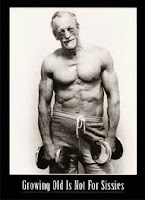Glycine for Your Gains? Glycine Boosts Protein Synthesis (80%), Reduces Protein Degradation (-30%) in Muscle Cells

If glycine worked in athletes as it did in pigs or even isolated muscle cells, in which scientists recently observed a dose-dependent increase in protein synthesis (up to 80%) and reductions in protein degradation (-30%), it would be a go-to supplement for dieting athletes. Glycine is not exactly the most popular amino acid supplement in the health and fitness community. With recent studies by a group of Chinese and American scientists from the State Key Laboratory of Animal Nutrition in China and the Texas A&M University , this may change - rightly so? Only recently Wang et al. were able to show that dietary glycine supplementation enhances skeletal muscle growth in young pigs (Wang. 2014a,b) - an excellent model of human metabolism. In view of the fact that the mechanism has hitherto not been fully understood, it was difficult to judge whether the smallest possible amino, i.e. glycine, could / would be useful for trainees as well. Learn more about amino acid supple...



